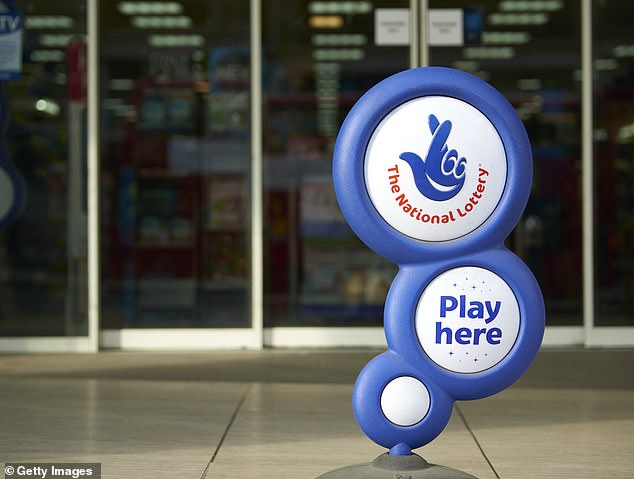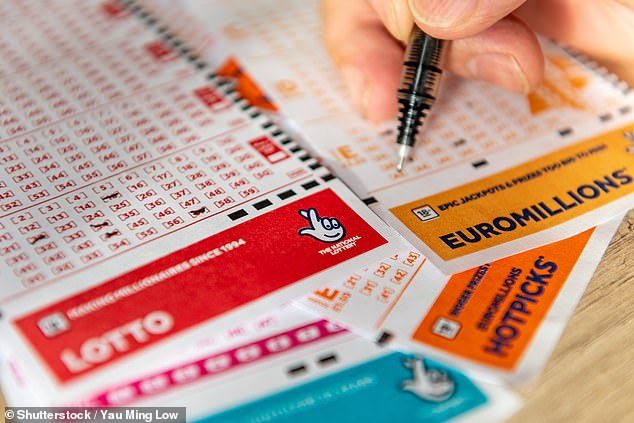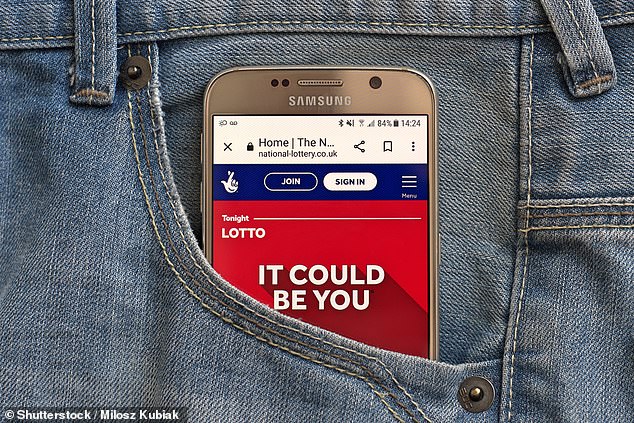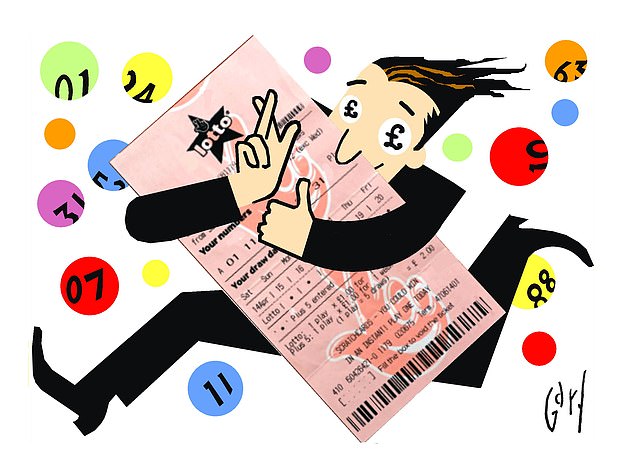Table of Contents
Households across the UK have been obsessed with the National Lottery draw for 30 years, waiting for their lucky numbers to come out first on Wednesday and Saturday nights.
About three in five adults play the Lottery regularly and the National Lottery has made more than 7,200 people millionaires since its launch in 1994.
Almost every family has their own beliefs surrounding the game, whether that playing rarely drawn numbers will increase your chances of winning the jackpot or that you are more likely to be struck by lightning than to win.
But is there substance to these beliefs or are they simply myths?
Money Mail investigates.
National obsession: About three in five adults play the Lottery regularly and the National Lottery has made more than 7,200 people millionaires since its launch in 1994.
Some regions are luckier than others
The Midlands is one of the luckiest places in the UK based on the number of lottery millionaires.
The National Lottery generated 934 millionaires in the region since its launch in November 1994 until March 2023.
However, only 174 people in Northern Ireland have won a prize of £1 million or more, and only 389 people in Wales.
Regional differences are equally stark when it comes to winners of £50,000 or more: the prize value at which the National Lottery begins introducing winners to one of its Winners’ Advisors, who guides players through the new wealth.
Some 6,377 people in the Midlands have won at least £50,000, compared to 5,859 in the south-east of England. However, this figure plummets to just 916 people in Northern Ireland and 2,235 in Wales.
So should potential winners move to one of these lucky areas? Not quite.
A National Lottery spokesperson says: ‘Certain areas have more National Lottery millionaires, but there are more people in London than in the North East, for example, so after 30 years of making millionaires, it was to be expected.
‘Remember, only about 5 percent of big winners share their news, so your perception of where the winners are may be based solely on winners spraying champagne. There are big winners in every corner of the country.
Store-bought tickets are better.
Many players remember when tickets could only be purchased at a local store or the post office.
But, in 2003, the National Lottery began offering online access to its draws. Online tickets can be purchased on the National Lottery website for £2 from 6am to 11pm and players can choose their numbers or take part in a Lucky Dip, which will randomly generate numbers. Players can also set up a direct debit to deposit on an ongoing basis.

Lucky Chance: Some players swear that buying a ticket the old-fashioned way at a store improves your chances.
Some players swear that buying a ticket the old-fashioned way improves your chances.
But a Lottery spokesperson explains that you won’t have a better chance of winning if you buy tickets at a retailer and says that the method by which a player purchases the ticket has no impact on the drawing.
‘Anyone has a chance to win; The essential thing is to have a ticket. Research has shown that there is a 50:50 split for big winners between retail and online tickets.’
Rare numbers increase the chances
Some lottery detectives can track the numbers that have been drawn the least to increase your chances of winning a prize with “rare” numbers.
Players may believe that these numbers have a better chance of being drawn soon. Numbers 23, 30 and 57 are the least drawn this year, as they have only been drawn twice as the main or extra ball.
In reality, this will do nothing to increase your chances of winning, as each drawing is a separate event.
The National Lottery says: ‘In theory, the same numbers could appear repeatedly in each draw. This is as statistically probable as any other set of six numbers that appear.
The same set of numbers (4, 15, 23, 24, 35 and 42) were drawn in two consecutive rounds of the Bulgarian Lottery in 2009.
There was a one in more than four million chance of this happening, but officials considered it a coincidence.
Fixed selections increase your luck
Many superstitious players have a fixed set of numbers that they use for each draw. Perhaps they are based on children’s birthdays, lucky numbers or memorable dates.
But playing a fixed set of numbers each draw won’t increase your chances of winning.
“The numbers you choose statistically have no influence,” says the Lottery spokesperson. “However, there are many big winners who will point out the lucky numbers that have helped them win big.”

Superstition: Paying the same fixed set of numbers each draw will not increase your chances of winning
A small prize leads to a big profit
An anonymous Lottery winner told Money Mail he won a small prize of £1,500 just after the Lottery draws began.
He visited the local post office to claim the money and the cashier told him that people who win a small amount tend to win again.
Almost two decades passed, but the same lucky player won just under £2.2 million.
Winners of a few thousand pounds may be jumping for joy because a future jackpot is up for grabs. Unfortunately, this idea is a myth. The Lottery spokesperson says past wins have no bearing on a player’s future chances of winning the Lottery.
Lightning is more likely to strike
Every lottery player knows a cynic who says he or she is more likely to be struck by lightning than to win the jackpot.
But the National Lottery says these odds are not comparable.
The odds of being struck by lightning are generally based on instances of previous strikes, while the odds of matching all six numbers are not based on previous drawings.
The chances of being struck by lightning are one in 1.127 million, according to figures from the Royal Society for the Prevention of Accidents.
A Lottery spokesperson says: “If you buy a line of six numbers for the next Lottery drawing, you have a one in 45 million chance of winning the jackpot – that’s because there are just over 45 million combinations of six numbers between one and 59”.
“Matching three numbers and winning £30 is one in 96. But if you don’t have a ticket, you don’t stand a chance.”

Luck: The National Lottery says the odds of winning the jackpot are always the same, no matter how big the jackpot is or how many players participate.
Always play on Wednesday.
The Lottery launched with a Saturday drawing and introduced a Wednesday drawing in 1997.
More people buy a ticket for the Saturday drawing, but players are no more likely to win on a Wednesday than on a Saturday.
A Lottery spokesperson insists that the odds of winning the jackpot are the same in both drawings.
‘The odds of winning the jackpot in any Lotto draw are the same because they are the odds of matching six numbers out of the 59 balls.
On Saturday June 8, one ticket matched six and that chance in 45 million netted the ticket holder £11.4 million.
Lower Jackpot Improves Odds
When there is a big prize on offer, such as the £15 million that was up for grabs in mid-May, players may rush in in the hope of landing their dream ticket.
Lottery fans may think it is a tactical move to enter a drawing with a smaller jackpot since fewer people can participate.
But the National Lottery says the odds of winning the jackpot are always the same, no matter how big the jackpot is or how many players participate.
Players have exactly the same odds of matching their numbers to win a £100 million jackpot or a £1 million jackpot.
‘This is because the odds of matching all six numbers on your ticket to the winning numbers remain the same each draw and do not change, even if more people enter when a jackpot is on offer.
But if a larger prize pool attracts more players, the winners may have to share their jackpot with more people, since there is a slightly higher chance that they have chosen the same number as someone else.
l.evans@dailymail.co.uk
Some links in this article may be affiliate links. If you click on them, we may earn a small commission. That helps us fund This Is Money and keep it free to use. We do not write articles to promote products. We do not allow any commercial relationship to affect our editorial independence.


